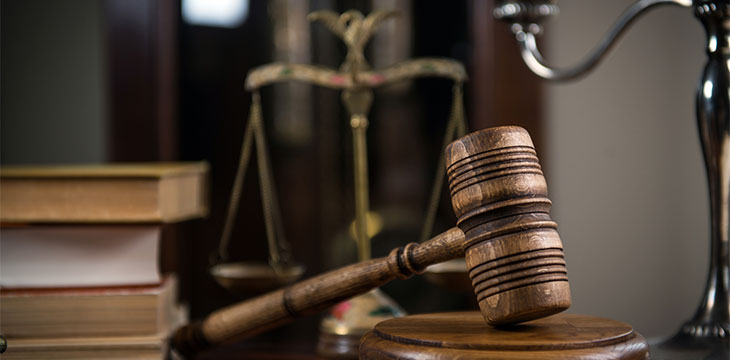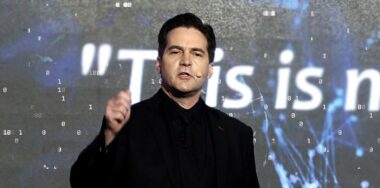Dr. Craig Wright and blogger Peter McCormack finally faced one another in court today as the Wright v McCormack libel case got underway in London.
The case concerns a series of publications (tweets and a video) in which ‘crypto’ blogger Peter McCormack is said to have defamed Dr. Wright by calling him a fraud in relation to his status as Bitcoin inventor Satoshi Nakamoto. The legal issues to be determined in the case have shrunk considerably over the years: McCormack isn’t arguing that the tweets were true and isn’t arguing that their meanings were defamatory. In fact, the only defense McCormack hasn’t withdrawn is that notwithstanding the truth of any of his publications, the defamatory tweets nonetheless did not cause serious harm to Dr. Wright’s reputation.
Dr. Wright took the stand first: he told the court how up until the time of McCormack’s tweets in 2019, he could pick and choose conferences to present at around the world. All of that, he says, stopped after McCormack’s Twitter campaign.
Much of the morning was spent with counsel for McCormack, Catrin Evans QC, questioning the claimant. Given the narrow scope of McCormack’s available defense, the questioning had something of a patchwork focus.
For instance, much time was spent on the conferences which Dr. Wright had earlier argued he had been disinvited from as a result of McCormack’s publications. However, the conferences themselves no longer have much relevance to the case: Dr. Wright has withdrawn their mention from his pleaded case, apparently due to the fact that the conferences (and therefore the damage) are outside of English jurisdiction.
Nonetheless, Evans QC spent considerable time on this subject, ostensibly as a way to cast doubt over the plaintiff’s credibility. Dr. Wright was shown various bits of evidence which she says indicate Dr. Wright was either not invited or had already been rejected. For example, time was spent on emails which contained feedback from conference organizers on papers submitted by Dr. Wright for presentation and which had been rejected. She also pointed to a lack of evidence on the record which shows Dr. Wright actually being disinvited from the conferences: Dr. Wright’s response was that much of his involvement with conference organizers was on a personal level and that it isn’t unusual for him to connect with industry events via non-regular channels.
At other times, Dr. Wright was shown tweets from Calvin Ayre in which he alluded to ‘troll-hunting’ in the courts or asked about his failure to file for default judgment when McCormack first failed to respond to his lawsuit (“If you’re asking that then you don’t know me,” said Dr. Wright, “I fight [to the end]”). These incidences, McCormack’s lawyer implied, show that Dr. Wright’s case against McCormack has nothing to do with harm to reputation, but is about using the courts to cynically make a point.
Before leaving the stand, Dr. Wright’s own lawyer asked some follow-up questions in closing and appeared to use McCormack’s own line of questioning against him. Echoing Evans’ earlier focus, he asked Dr. Wright how it feels to have negative feedback to his professional submissions discussed in open court: “Not terribly good,” he replied. How does Dr. Wright feel about being accused of giving false evidence? “Horrible—part of being autistic is that we’re terrible liars.”
Dr. Wright then gave way to McCormack, who was briefly sworn in at the end of the day. The bulk of his evidence will take place on day two.
New to blockchain? Check out CoinGeek’s Blockchain for Beginners section, the ultimate resource guide to learn more about blockchain technology.








